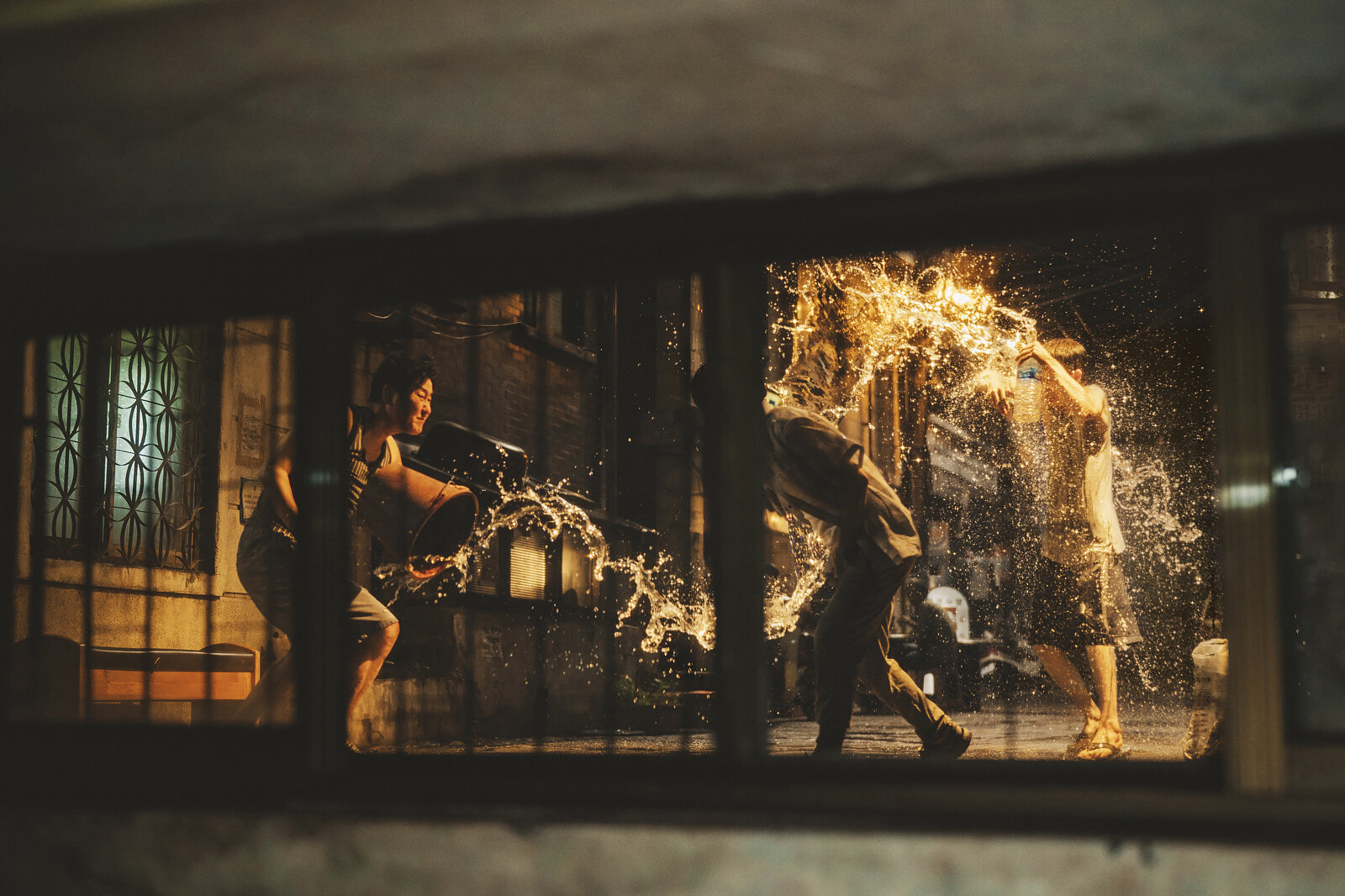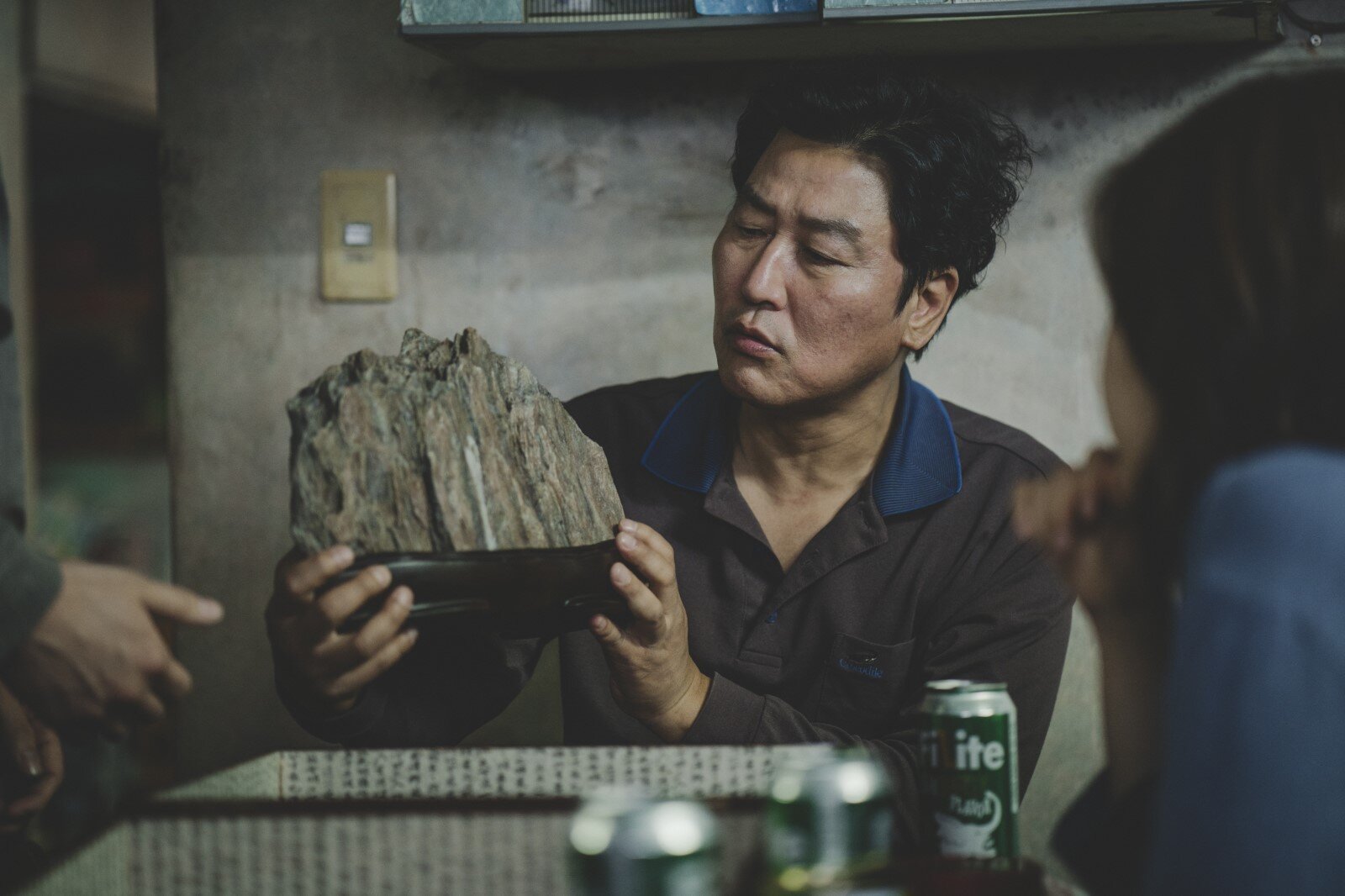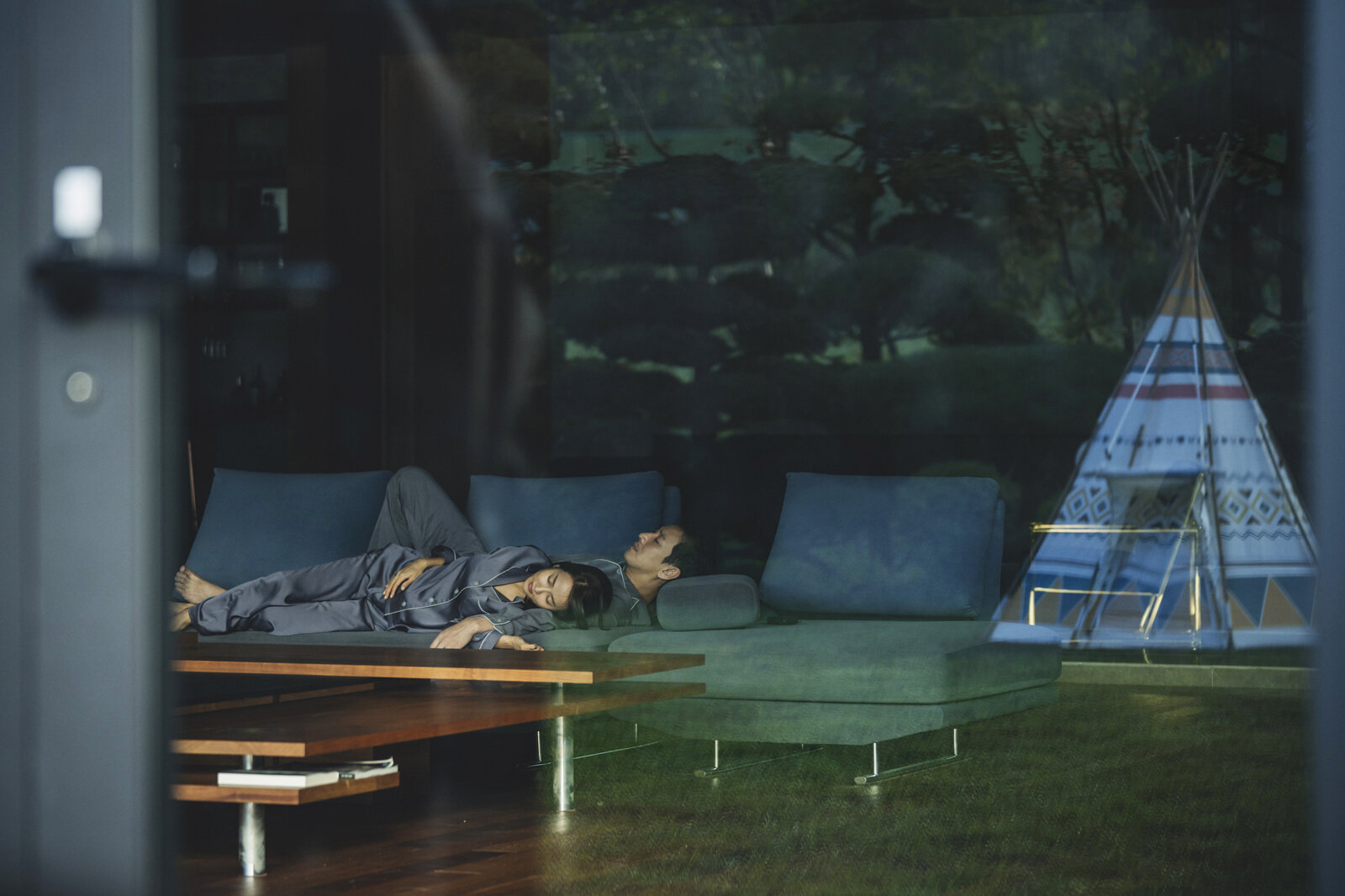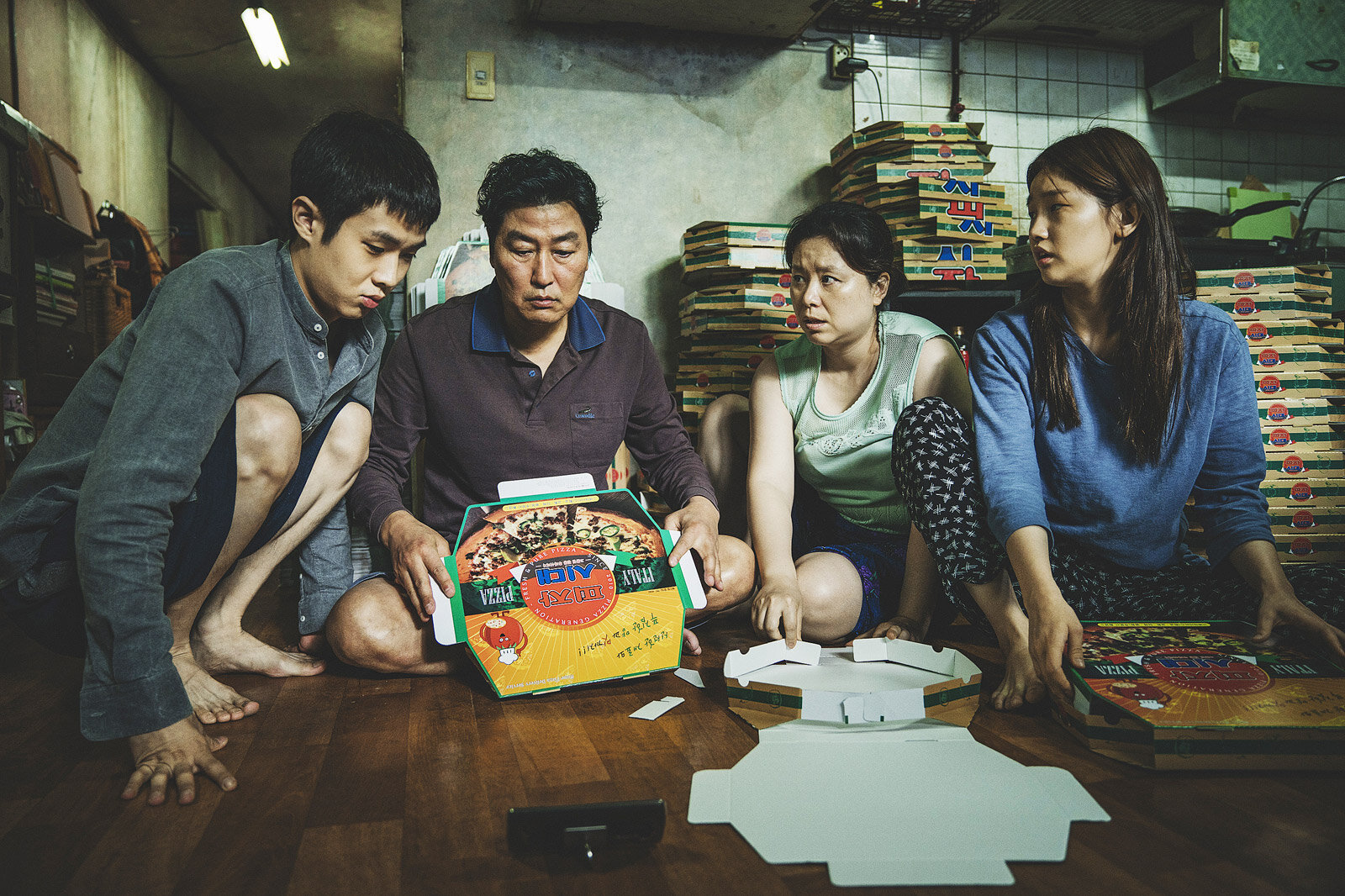Parasite (2019)
Director: Boon Jong-Ho
Starring: Song Kang-ho, Lee Sun-kyun, Cho Yeo-jeong, Choi Woo-shik, Park So-dam, Jang Hye-jin
Primary genre: Black comedy
Secondary genre: Thriller
Nominated for: Best picture, director, original screenplay, international feature film, film editing, production design
Won: Best picture, director, original screenplay, international film feature
South Korea is a powerhouse when it comes to thrilling storytelling - "Oldboy" (2003), "The Chaser" (2007), "Man from Nowhere" (2010), "I Saw the Devil" (2010), "Train to Busan" (2016) - can all be seen in the the top 10 of an average cinephile. The director of the latest addition to this pantheon, “Parasite” (2019), Boon Jong-Ho has made an outstanding career by dipping his toes across different genres - from murder mystery to science fiction dystopias with remarkable success.
In “Parasite”, John-ho focus on a fascinating story of economic survival that sees a low class family leeching itself through a series of circumstances to a rich household. While the plot is small in scale, there is a surprising amount of dark twists that capture accurately the dynamics of a society that is being driven by a vast wealth gap. Boon’s script raises tough questions and leaves the viewer to decide what is morally right or wrong with its sharp social commentary. The rich family, the catalyst for the whole story are not characterized here as amoral or idiotic, but as a normal group of individuals with their own problems and anxieties that provide well-paid jobs and entrusting their entire way of living to total strangers without the shadow of a doubt. And it is this symbiotic relationship that can be considered the centerpiece of “Parasite”.
Yet, for anyone who has watched more than one Korean film, all these observations are nothing new. In principle Korean directors and screenwriters take aim to the social constructs of classes and the corruption of the elite with any chance they get - even the genre might be more straightforward, something that Boon himself has done throughout his eclectic filmography. And no matter how interesting the proceedings can get, “Parasite” feels slightly overextending its welcome with a tendency to over-explain things at the unfortunate end instead of leaving the viewer to decide most of the cast’s fate.
Nevertheless, since most of the action is taking place within the rich family’s household which is a character itself (and with a splendid production design by Ha-jun Lee), Boon crafts meticulous shots that create appropriate ambiance which sometimes might lean (surprisingly) to horror territory. The now iconic dinner scene is a masterclass of suspense that brings back memories from Quentin Tarantino’s opening sequence in “Inglourious Basterds” (2009) while the second half has a manic energy that typically you would not expect it from a film of this type to have.
Boon Jong-ho is wholeheartedly supported by his favorite actor Song Kang-ho (“Memories of Murder“ (2003), “The Host” (2006), “Snowpiercer” (2013)) and the rest of the cast who all excel in their respectively distinct roles which are helped by the socially and yet comically infused material but the standout is Jo Yeo-jeong as the rich mother who steals the show with her naïve mannerisms.
A highly sophisticated dramedy with a few creepy moments for good measure, “Parasite“ is an excellent initiation to the hardcore and emotionally charged aesthetics of Korean cinema. While “The Host” and “Snowpiercer” could easily be regarded as Boon Joon-ho’s finest work, “Parasite” comes quite close with its strong performances and its sharp social commentary by providing a relatable story for our times that occurs in the most extraordinary circumstances. Highly recommended.
A South Korean masterpiece
+Excellent cast especially Jo Yeo-jeong
+Spot on social commentary
+Meticulous production design
+Dinner scene is a masterclass of suspense
+Sympathetic characters
+Interesting twists
-Commentary is nothing new in Korean cinema
-Extended finale





